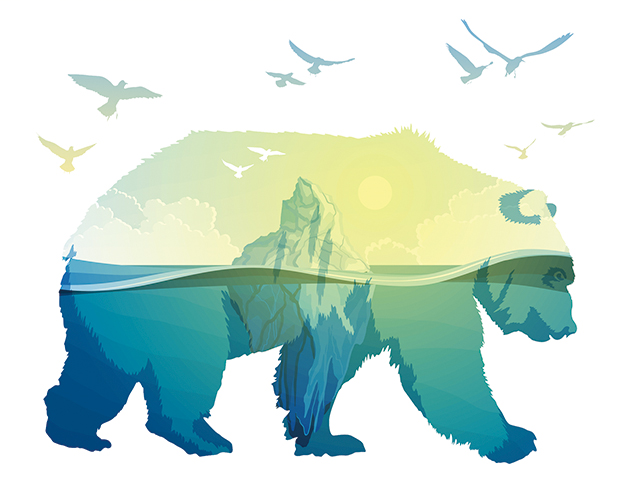牛津译林版八年级英语上册阅读理解专项强化训练题含答案(六)
作者:未知 时间:2020-11-23 阅读:( )
Day 1
Will we lose jobs?
In science fiction films, we often see machines doing jobs that humans usually do. This is gradually coming true. By 2025, machines will do more work than humans, according to a new report. The World Economic Forum (WEF) report came out on Oct 21. It said that in the next five years, machines will take over about 85 million jobs. This means that machines will handle about half of all work tasks, almost twice as many as now, Quartz reported. Most of the jobs are either routine (程序性的) or manual (体力的) jobs in administration (行政) for white- and blue-collar (白领和蓝领) workers, WEF said. These include factory workers, accountants and mechanics (机修工). But there's not much reason to be worried. The report also shows that at the same time, 97 million new jobs will be created. New industries will be created as society changes and develops. Countries around the world are focusing on (专注于) areas like environmental protection, AI development and elderly care. This means there will be many new jobs for caretakers, big data specialists (专家), and cloud computing experts, the BBC reported. These jobs need human skills such as advising, decision-making (决策), reasoning (推理) and communicating. "People need to learn new skills to deal with the change [in society]," the WEF pointed out.
1. How many jobs do machines do now?A. 21.25 million jobs.B. 42.5 million jobs.C. 85 million jobs.D. 170 million jobs.
2. Which job is most likely to be taken by machines in the future?A. Factory worker.B. Pianist. C. Scientist.D. Designer.
3. According to the report, _____.A. people won't need to work in the futureB. there will be new jobs for humans in the futureC. people will compete with machines for the same jobsD. machines can work faster than humans
4. The writer probably agrees that _____.A. there will not be enough jobs in the futureB. machines can still be improvedC. people should make careful use of machinesD. people should learn more new skills
Day 2
Finding hope in dark times lifts us up

Who stands for human civilization (文明) better than pianists? Wladyslaw Szpilman is a good example. The music he plays is beautiful, but his life is in danger. That's the story of Polish director Roman Polanski's 2002 film The Pianist. Based on an autobiographical (自传的) novel, it's the story of Jewish pianist Szpilman. He hears about the Nazi invasion (侵略) on the radio. He is eventually caught and sent to a death camp, but manages to escape (成功逃脱) and lives in the ruins (废墟) of Warsaw. When the city is bombed (被……轰炸), he is no longer able to find food. But one night, he finds a piano and plays it. German officer Wilm Hosenfeld hears him and is surprised at his talent. The pianist survives with the protection and help of the officer, who understands the beauty of music and the importance of saving it. Hosenfeld not only helps Jewish people get fake identities (身份) and places to live, he also writes diary entries and letters that criticize the brutality (暴行) of the Nazis. It's people like Hosenfeld who can bring others hope in dark times. He shows that although evil exists (存在) in the human heart, so does love.
1. What do we know about The Pianist?A. The story in the film took place in 2002.B. It's about a Jewish pianist.C. It made lots of money.D. It is a well-known musical.
2. Paragraph 2 is mainly about _____.A. how Szpilman suffered and was savedB. what the movie's historical background was C. how Szpilman escaped from the death campD. why people enjoy Szpilman's story
3. Hosenfeld saved Szpilman because _____. A. he knew that Jewish people are harmlessB. he had the same experience as SzpilmanC. he was touched by Szpilman's musicD. he was an old friend of Szpilman
4. From the story, we know that Hosenfeld _____A. thought that all people are equal B. saved Jewish people who had certain talentsC. helped Jewish people fight backD. helped many Jewish people in secret
Day 3
Arctic ice is at risk

A weak, skinny polar bear is standing on a small piece of ice, drifting (漂流) in the sea. He is losing the solid (坚固的) ice that used to be his home and hunting ground. There has been a lot of bad news in recent years about how climate (气候) change has affected the Arctic (北极). This October, a group of scientists returned from a year-long Arctic expedition (远征). They had more bad news: all Arctic ice may disappear during the summer in just a few decades (十年). "This world is threatened. We really saw how the ice is disappearing," said Markus Rex, leader of the expedition. The temperature (温度) in the Arctic is 18 degrees higher than it was 125 years ago. Even at the North Pole, the coldest point in the Arctic, scientists found badly melted (融化的), thin ice. Polar bears are not the only animals that are suffering. Animals like walruses (海象) and seals also depend on the ice to rest, give birth and raise babies. The loss of ice means the loss of their habitat (栖息地). Since there's now more rain, moss (苔藓) and grass are locked in ice instead of snow. Many reindeer (驯鹿) starve (挨饿) to death because they can't get to their food under the hard ice. According to the World Wildlife Fund (WWF), the number of reindeer has dropped by 56 percent in the last 20 years. Melting sea ice is also opening the door for more human activity, such as shipping, traveling and fishing. This will disturb (扰乱) the area's environment and the Arctic would never be the same again.
1. How is climate change affecting the Arctic?______________________________________
2. How has the temperature in the Arctic changed over the years?______________________________________
3. How is melting ice affecting animals?______________________________________
4. Why are reindeer dying in the Arctic?______________________________________
5. What will happen in the Arctic if human activity increases?______________________________________
Day 4
Racing to find a COVID cure

Scientists around the world have been racing to find a vaccine (疫苗) for the novel coronavirus as the COVID-19 pandemic continues. Some countries have started testing their vaccines, including China. The country now has 13 vaccine candidates (候选) in clinical trials (临床试验), according to China Daily. You might be wondering –how exactly do vaccines work? The answer is actually very simple. The first vaccine was found in 1796, when English doctor Edward Jenner exposed (暴露) a 13-year-old boy to a small amount of the cowpox virus (牛痘病毒). Cowpox is a cousin of the deadlier disease smallpox (天花). Amazingly, the boy developed immunity (免疫力) to smallpox - and in 1798, the first smallpox vaccine was created. You see, when our bodies are exposed to small amounts of dead or weakened (削弱的) viruses, we create special cells called antibodies (抗体). If we're exposed to the same viruses later, our antibodies can kill them off, even if they're stronger. Since Jenner's discovery, we've come up with many vaccines, including those for chicken pox (水痘) and the flu (流感). However, developing a safe and useful vaccine takes time. Some vaccines simply don't work, while others have uncomfortable or even dangerous side effects (副作用). About 60,000 people in China have received COVID-19 trial vaccinations so far, according to CGTN. They have not reported any serious side effects. However, clinical trials must be finished before the vaccine is ready for more people.
1. Paragraph 2 explains _____.A. how vaccines workB. what vaccines are made ofC. how the first vaccine was discoveredD. what kinds of vaccines we have today
2. How do vaccines work?① The patient is exposed to small amounts of dead or weakened viruses.② The patient is exposed to the same virus later.③ The patient's antibodies kill the virus off.④ The patient's body creates antibodies.A. ①②③④B. ②①④③C. ②④①③D. ①④②③
3. The COVID-19 vaccine is not ready for the public because _____.A. its clinical trials are not finishedB. it is said to have side effects C. mass production has not started yetD. it has been found to be ineffective
4. From the story, we know that _____.A. every virus has a vaccineB. vaccine testing is easyC. the pandemic will be over soonD. vaccines are difficult to create
Day 5
The castle (城堡) of Prince Llywelyn stood in the Welsh (威尔士) mountains, next to a dark forest full of wild animals. Llywelyn led a happy life. There were 1 things that he loved most in the world: his wife, his baby son and his dog, Gelert. Gelert was a strong, brave(勇敢的) dog. Gelert loved the baby and slept under his bed to 2 him every night. One day, Llywelyn and his wife had to 3 the castle early in the morning. Llywelyn told the dog to 4 the baby while he was away. At the end of the day, Llywelyn and his wife returned to the castle. As Llywelyn walked into the baby's bedroom, he could not see the baby anywhere. What had 5 ? Gelert was covered in blood (血). Llywelyn's first thought was that his dog had 6 the baby. Terribly angry, he immediately (立刻) took out his knife and killed the dog he had loved so much. It was then that he saw his baby 7 and well, sleeping under a blanket (毯子). The dead body of a huge wild dog lay next to him. Gelert had not killed the baby, 8 had killed the wild dog, which had tried to eat the baby. Llywelyn realized what a terrible mistake he had 9 . The prince buried (埋葬) Gelert under the castle wall so people would always10 how brave Gelert had been. His story is still told today.1. A. one B. two C. three D. four2. A. protect B. watch C. perform D. feed3. A. find B. enter C. clean D. leave4. A. look after B. pay for C. put up D. spend on5. A. started B. closed C. missed D. happened6. A. hid B. killed C. left D. hit7. A. awake B. alive C. lively D. hurt8. A. and B. so C. but D. or9. A. made B. tried C. taken D. turned10. A. forget B. remember C. mind D. find
参考答案:
Day 1: BABDDay 2: BACDDay 3: 1. Arctic ice is melting and may disappear in just a few decades.2. It's 18 degrees warmer than it was 125 years ago.3. They are losing their habitat and food.4. Because more rainfall has caused their food to freeze under the ice.5. The area's environment will be disturbed.Day 4: CDADDay 5: 1-5 CADAD 6-10 BBCAB
奇速英语冬夏令营都在用心做教育,以中学英语必修词汇、阅读为目标,通过八天七夜的全封闭集训,最低记完初中三年1600个单词;最低记完高中三年3500个单词;实现涨分游学双收获!每批次家长群的真实心声就还是答案。金杯银杯离不开家长的好口碑!奇速英语从7个学生开始办营,到现在成都营千人规模,90%学员都是老生或老生转介绍!良好的特训效果均受广大学员及家长、权威英语教育专家、英语培训同行的一致赞誉,学员们通过“7天(36小时—48小时)奇速学会3年单词,英语阅读又快又准”,将“英语速成,奇速涨分”的效果体现得淋漓尽致。欢迎关注奇速英语官网了解课程加入学习,奇速英语将一直致力于改变和引领中国英语词汇和阅读教学。请让孩子参加本次学习,完成全部课程,孩子的词汇量至少提升2000+!除此之外,以上英语冬令营课程也可以在线学习,奇速英语小学在线课程、初中英语同步涨分课程(初一、初二、初三)、高中英语同步涨分课程(高一、高二)在线试听可以点击链接报名http://www.qisuen.cn/wx/user/account/elevenActivityIndex?fromer=21

(英语冬夏令营单词阅读课程扫码联系老师参与课程报名)
-
人教版八年级英语下册期末试题及参考答案,孩子为什么要参加一次2022奇速英语冬令营活
(296)人喜欢 2022-01-07 -

八年级英语上册检测试卷及答案,2022怎么给孩子选择适合的成都寒假英语冬令营?
(1245)人喜欢 2022-01-07 -
八年级英语下册期末考试试卷(含听力及答案),参加2022高中新生成都重庆英语冬令营需
(252)人喜欢 2022-01-06 -

外研版 ▏八年级英语下册期末英语试题(含答案),2022为什么成都金牛区奇速英语冬令
(240)人喜欢 2022-01-05 -

八年级英语下册期末试题(含答案),还没考的赶紧练!7天寒假四川成都英语冬令营有哪
(215)人喜欢 2022-01-05 -
人教版 ▏八年级英语下册期末英语试题(含答案),2022寒假孩子参加重庆奇速英语冬令
(202)人喜欢 2022-01-05 -

人教版八年级英语下册期末试题及参考答案,、2022成都奇速英语冬令营推荐
(216)人喜欢 2022-01-05 -
人教版八年级英语上册Unit 2同步作业本和答案
(533)人喜欢 2021-08-24 -
人教版八年级英语上册Unit 1同步作业本和答案
(412)人喜欢 2021-08-24 -
人教版 ▏八年级英语(上册)重点短语、句型默写版(含答案)
(352)人喜欢 2021-08-13

从兴趣到习惯:奇速英语冬令营助力英语全面提升

奇速英语冬令营:突破思维,掌握英语学习新方法

2025吉林省长春市奇速英语冬令营:寒假蜕变计划

2025黑龙江省哈尔滨市奇速英语冬令营:寒假蜕变

寓教于乐:奇速英语冬令营让英语学习趣味无穷

思维导图记单词:奇速英语冬令营打造高效学习之

冬令营火爆来袭,奇速英语引领英语学习新潮流!

2025广东广州奇速英语冬令营:寒假蜕变计划,英

英语学习必备!6大知名单词阅读APP推荐排行榜

奇速英语时文阅读个性化:单词速记、AI口语、作

奇速英语时文阅读:李子柒与刀郎!四川小李飞刀

英语提分秘诀:突破环境限制,掌握高效方法

英语时文阅读图书大升级!解锁奇速英语个性化时

奇速英语时文阅读APP小程序:新功能AI英语作文批

深圳贵阳冬令营英语新体验?奇速英语寒假冬令营

西宁兰州广州冬令营英语新体验?奇速英语寒假冬

昆明杭州宁波冬令营英语新体验?奇速英语寒假冬

合肥福州厦门冬令营英语新体验?奇速英语寒假冬

长春南昌冬令营怎么选?奇速英语单词速记冬令营

武汉长沙冬令营怎么选?奇速英语单词速记冬令营




